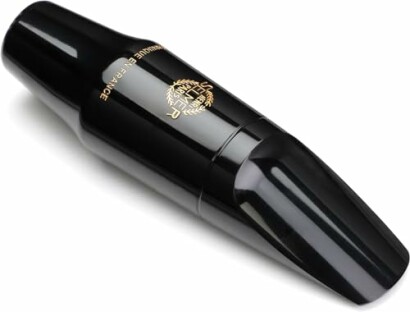
Choosing the Right Mouthpiece for Your Playing Style
- Understand the importance of mouthpiece material and design in achieving your sound.
- Consider factors such as tip opening and facing length when selecting a mouthpiece.
- Evaluate different mouthpiece styles and brands to match your playing preferences.
Mouthpieces play a crucial role in the overall sound and playability of your tenor saxophone. Choosing the right mouthpiece can enhance your tone, improve your technique, and cater to your specific musical style. Whether you're a jazz enthusiast or a classical lover, this guide will help you navigate the essentials of selecting the perfect mouthpiece.
Factors to Consider When Choosing a Mouthpiece
Material
Mouthpieces are commonly made from either rubber or plastic, with each offering distinct advantages:
- Rubber: Offers a warm and rich sound; often preferred by advanced players.
- Plastic: Generally more affordable; good for beginners to experiment with different styles.
Design and Shape
The design of the mouthpiece can drastically affect sound output:
- Round chamber: Produces a focused sound; beneficial for jazz and contemporary styles.
- Square chamber: Offers more projection; ideal for classical performances.
Tip Opening and Facing Length
Two critical measurements that influence playability:
| Measurement | Description |
|---|---|
| Tip Opening | Wider openings support a louder sound but may require more airflow; narrower openings can offer better control but less volume. |
| Facing Length | The distance from the tip to the curve of the mouthpiece; longer facings allow for greater flexibility in tone. |
Popular Mouthpiece Options
Below are some mouthpieces worth considering, especially for tenor saxophone players:
Selmer S-80 C* Mouthpiece
This rubber mouthpiece features a square cross-section in the chamber, making it perfect for advancing your sound to the next level.
Learn MoreTrying Out Mouthpieces
Every player is unique, and the best way to find your perfect mouthpiece is through trial and error.
- Visit a local music store to test various mouthpieces. Many shops will allow you to try before you buy.
- Experiment with different brands and materials to discover what suits your playing style.
- Take note of how each mouthpiece responds to your playing dynamics.
Glory Gold Laquer E Flat Alto Saxophone
This saxophone includes a comprehensive care kit and is an excellent choice for all levels of players.
Learn MoreCare and Maintenance of Your Mouthpiece
Keeping your mouthpiece in good condition is essential for great sound quality:
- Clean your mouthpiece regularly to avoid buildup and maintain clarity of sound.
- Use a soft cloth to remove moisture after each use.
- Store in a protective case to prevent damage during transport.
Know Your Playing Style
Your style of music should heavily influence your choice of mouthpiece:
| Style | Recommended Mouthpiece Features |
|---|---|
| Jazz | Wider tip opening for bright tones and more projection. |
| Classical | Narrower tip opening for a more controlled sound. |
| Contemporary | Versatile mouthpieces that allow for various tone adjustments. |
Conclusion
Choosing the right mouthpiece is a highly personal decision that can impact every aspect of your playing. By considering factors like material, design, and your unique playing style, you can find a mouthpiece that not only matches your aesthetic but also elevates your performance. Don't hesitate to experiment and research until you find the one that feels just right for you.
Tips for Beginners
- Start with a standard mouthpiece if you are new to the saxophone. This provides a baseline to understand your preferences.
- Seek advice from teachers or experienced players; their insights can be invaluable.
- Keep an open mind during your experimentation phase; each mouthpiece can yield a distinct sound and feel.

